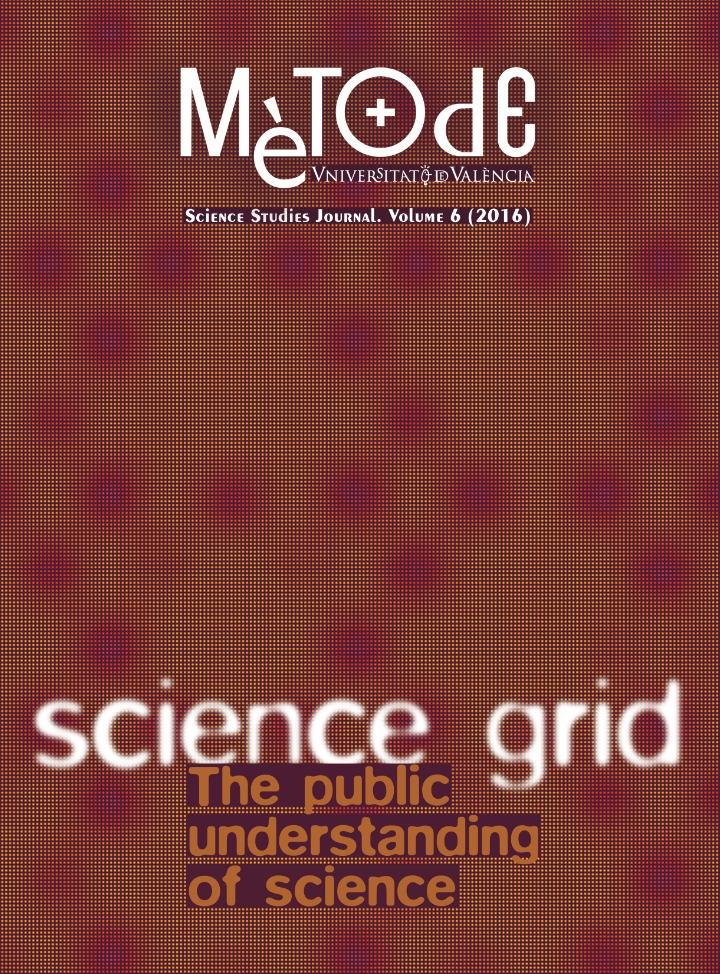The sleep of (scientific) reason produces (literary) monsters. Or, how science and literature shake hands
DOI:
https://doi.org/10.7203/metode.6.3481Keywords:
Enlightenment, Romanticism, vampires, Frankenstein, science fiction Abstract
Abstract
Enlightened reason and romantic imagination were seen as two opposing ways of conceiving art and life. Today, from our historical vantage point, it is difficult to understand one without the other. As if the nightmares of science were nothing more than the food of romantic monsters. This article analyses the evolution of fantastic literature and the birth of scientific fiction in the nineteenth century, as well as the conflict between the rational and the supernatural.
 Downloads
Downloads
 References
References
Antonio Mora, M. (2007). “El sueño de la razón…”: Apuntes sobre la idea de Razón en el grabado de Goya. Espéculo. Revista de estudios literarios. Retrieved from http://links.uv.es/OEoxp0M
Le Breton, D. (1998). Ceci est mon corps. Manger la chair humaine. Religiologiques, 17, 99–111. Retrieved from http://links.uv.es/eKDCbD3
Martínez-Gil, V. (Ed.). (2004). Els altres mons de la literatura catalana. Barcelona: Galàxia Gutenberg.
Pérez Pérez, N. (2007). Anatomia, química i física experimental al Reial Col·legi de Cirurgia de Barcelona (1760-1808) (Unpublished doctoral thesis), Universitat Autònoma de Barcelona, Spain. Retrieved from http://links.uv.es/Cylu7xA
Polidori, J. W. (2013). El vampir. Barcelona: Angle.
Pulido Tirado, G. (2012). Vida artificial y literatura: Mito, leyendas y ciencia en el Frankenstein de Mary Shelley. Tonos digital: Revista electrónica de estudios filológicos, 23. Retrieved from http://links.uv.es/E07Vt40
Shelley, M. (2006). Frankenstein. Barcelona: Vicens Vives.
Published
How to Cite
-
Abstract1184
-
PDF (Español)507
-
PDF (Català)149
-
PDF206
Issue
Section
License
![]()
All the documents in the OJS platform are open access and property of their respective authors.
Authors publishing in the journal agree to the following terms:
- Authors keep the rights and guarantee Metode Science Studies Journal the right to be the first publication of the document, licensed under a Creative Commons Attribution-NonCommercial-NoDerivatives 4.0 International License that allows others to share the work with an acknowledgement of authorship and publication in the journal.
- Authors are allowed and encouraged to spread their work through electronic means using personal or institutional websites (institutional open archives, personal websites or professional and academic networks profiles) once the text has been published.





